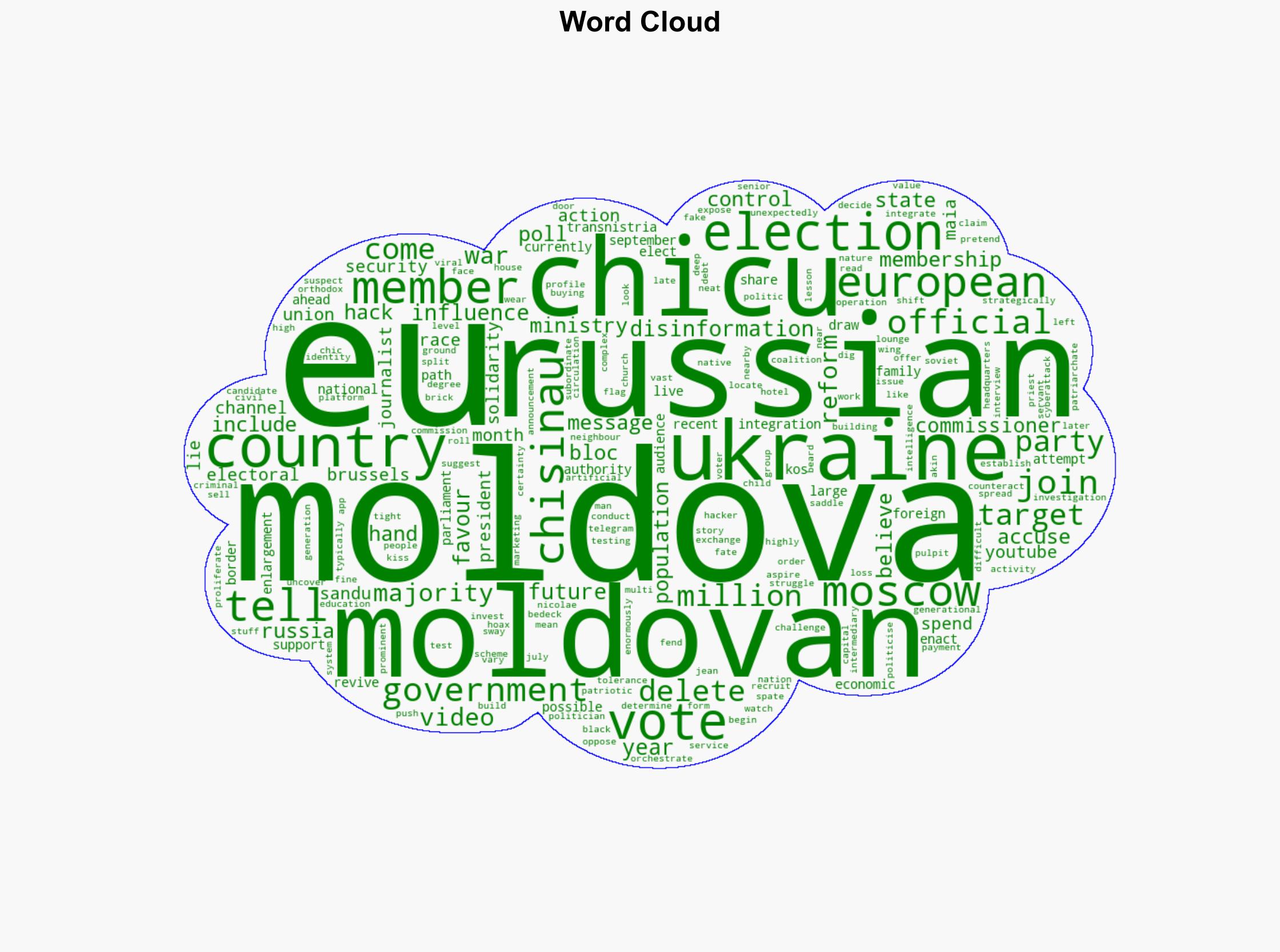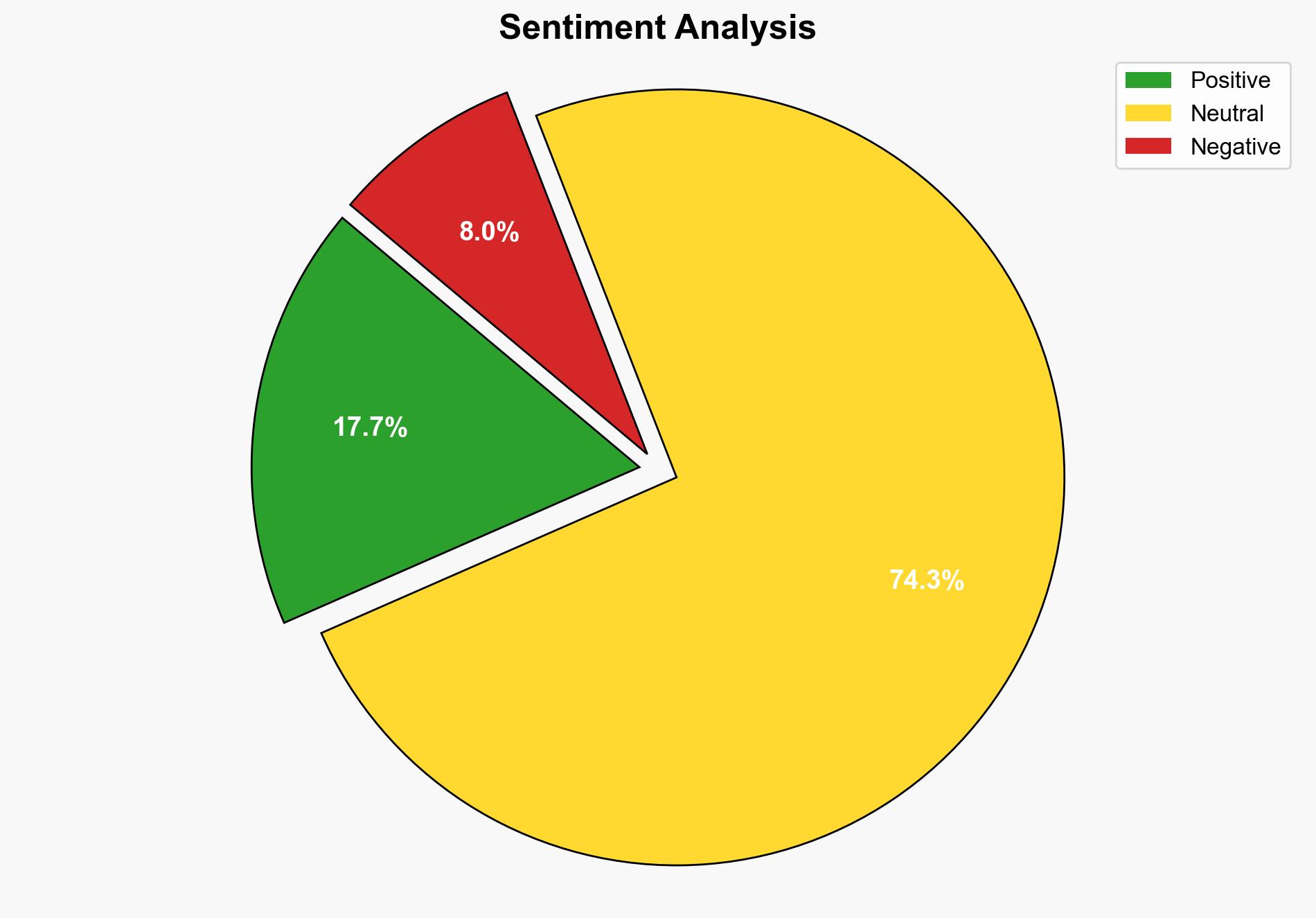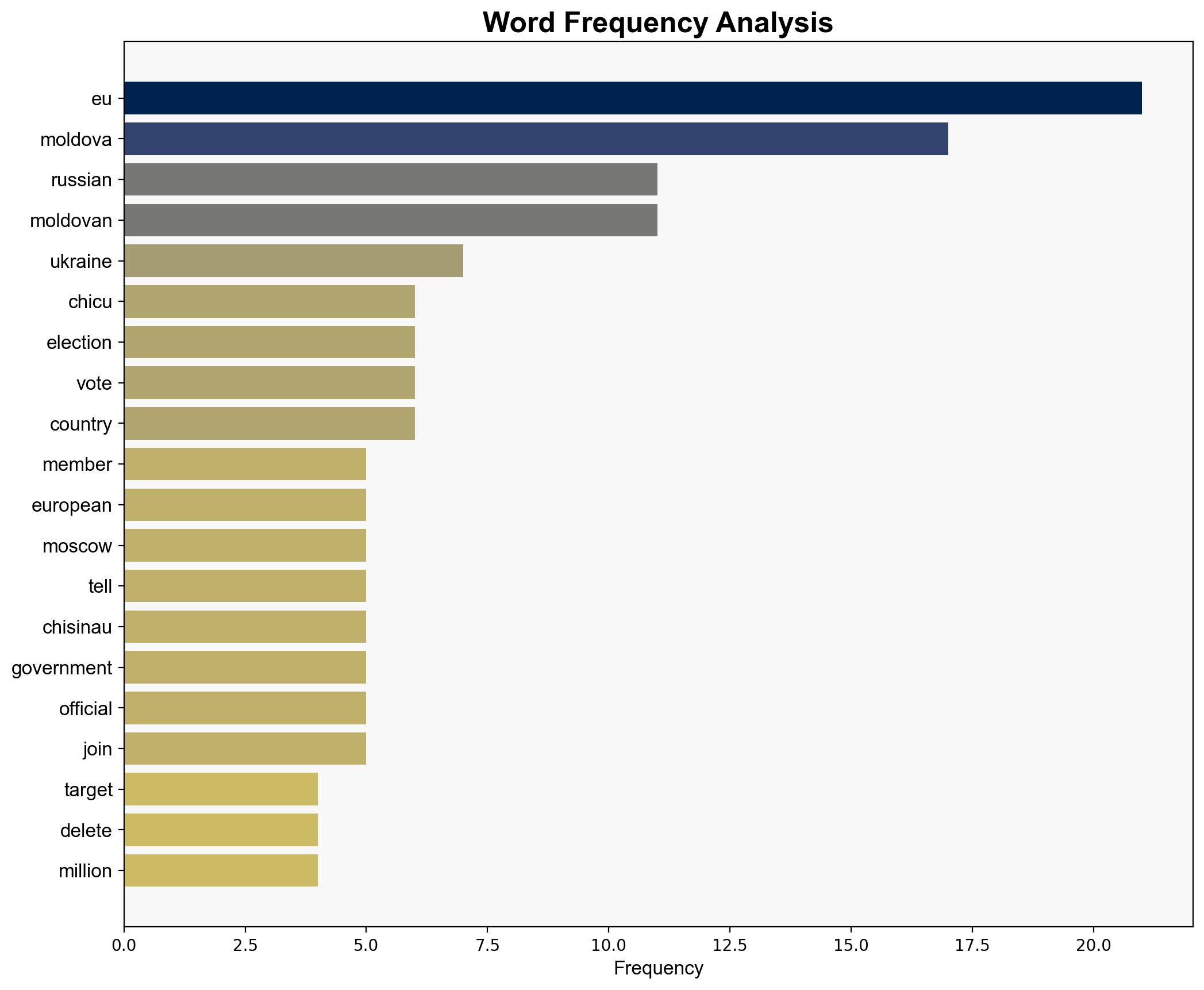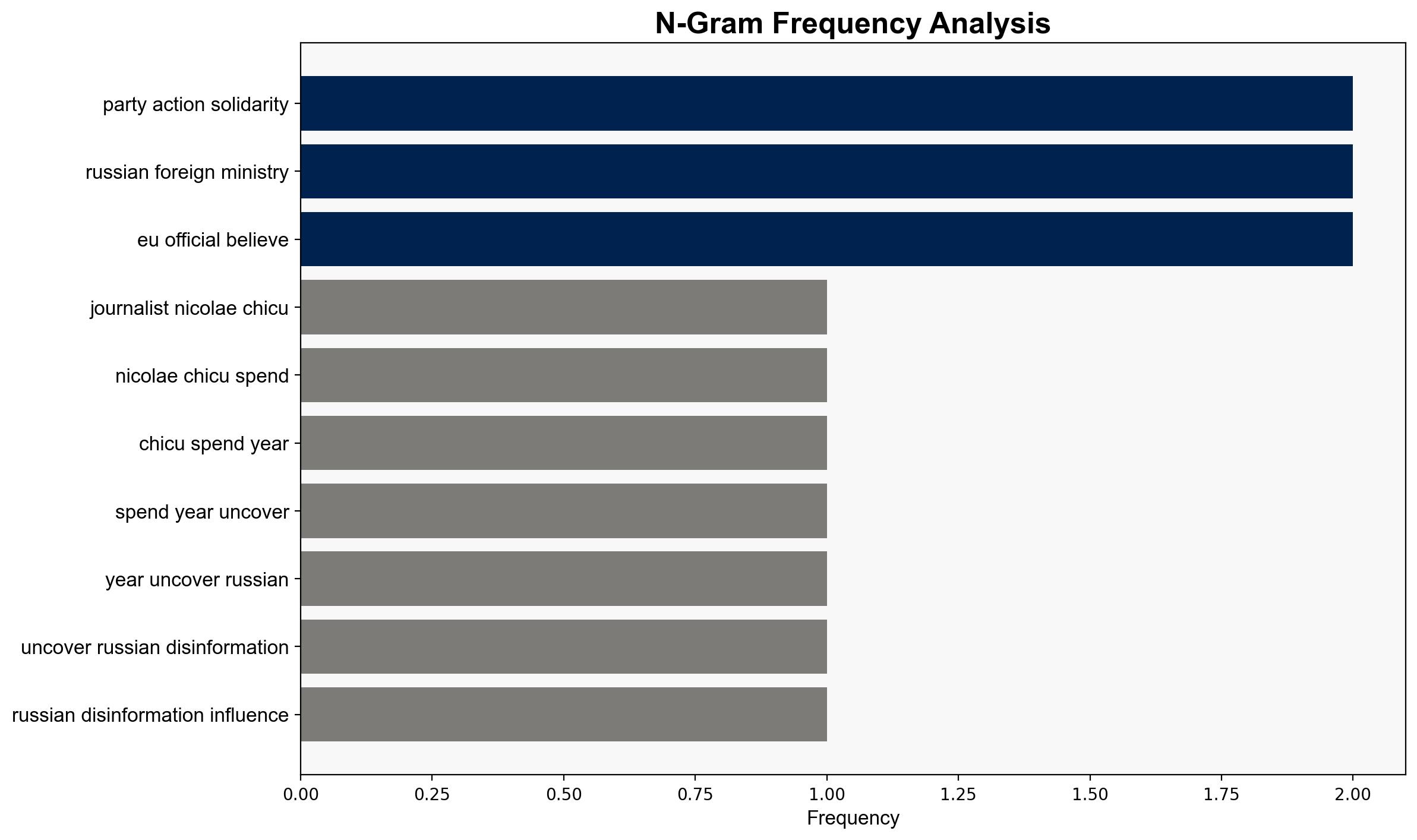Moldova flooded with deep fakes and disinformation as voters face stark choice between east and west – The Irish Times
Published on: 2025-09-14
Intelligence Report: Moldova flooded with deep fakes and disinformation as voters face stark choice between east and west – The Irish Times
1. BLUF (Bottom Line Up Front)
Moldova is experiencing a surge in disinformation and cyber activities, likely influenced by Russian interests, as it faces a pivotal election. The most supported hypothesis is that Russia is actively attempting to sway Moldovan politics to prevent EU integration. Confidence level: Moderate. Recommended action: Strengthen Moldova’s cybersecurity infrastructure and enhance public awareness campaigns about disinformation.
2. Competing Hypotheses
1. **Hypothesis 1**: Russia is orchestrating a disinformation campaign to influence Moldovan elections and prevent EU integration.
– **Supporting Evidence**: Reports of Russian-backed hacking, deep fakes, and disinformation targeting pro-EU narratives. Allegations of vote-buying schemes and influence operations align with known Russian tactics.
2. **Hypothesis 2**: Internal Moldovan factions are using the guise of Russian interference to manipulate public perception and gain political advantage.
– **Supporting Evidence**: The complexity of the disinformation could be exploited by local actors to discredit opponents and rally nationalist sentiments. The narrative of foreign interference might be exaggerated to consolidate power.
Using the Analysis of Competing Hypotheses (ACH), Hypothesis 1 is better supported due to consistent patterns of Russian influence in neighboring regions and corroborating reports from multiple sources.
3. Key Assumptions and Red Flags
– **Assumptions**: Russian interest in Moldova’s geopolitical alignment; capability and intent to conduct cyber operations.
– **Red Flags**: Lack of direct evidence linking specific cyber activities to Russian state actors; potential bias in attributing all disinformation to external sources.
– **Blind Spots**: Underestimation of local actors’ capabilities in cyber operations; insufficient exploration of non-Russian foreign influences.
4. Implications and Strategic Risks
– **Geopolitical**: A shift towards Moscow could destabilize regional EU aspirations and embolden similar tactics in other Eastern European nations.
– **Cybersecurity**: Increased sophistication in cyber tactics could set a precedent for future elections in the region.
– **Psychological**: Erosion of public trust in democratic processes and institutions.
– **Economic**: Potential sanctions or economic repercussions depending on election outcomes and foreign policy shifts.
5. Recommendations and Outlook
- Enhance Moldova’s cybersecurity defenses with international support and training.
- Implement public education campaigns to identify and counteract disinformation.
- Scenario Projections:
- **Best Case**: Successful mitigation of disinformation leads to a fair election, strengthening democratic institutions.
- **Worst Case**: Disinformation sways the election, resulting in a pro-Moscow government, destabilizing the region.
- **Most Likely**: Continued disinformation efforts with partial success, leading to a contested election outcome.
6. Key Individuals and Entities
– Nicolae Chicu: Journalist investigating Russian disinformation.
– Maia Sandu: Moldovan president advocating for EU integration.
7. Thematic Tags
national security threats, cybersecurity, counter-terrorism, regional focus




